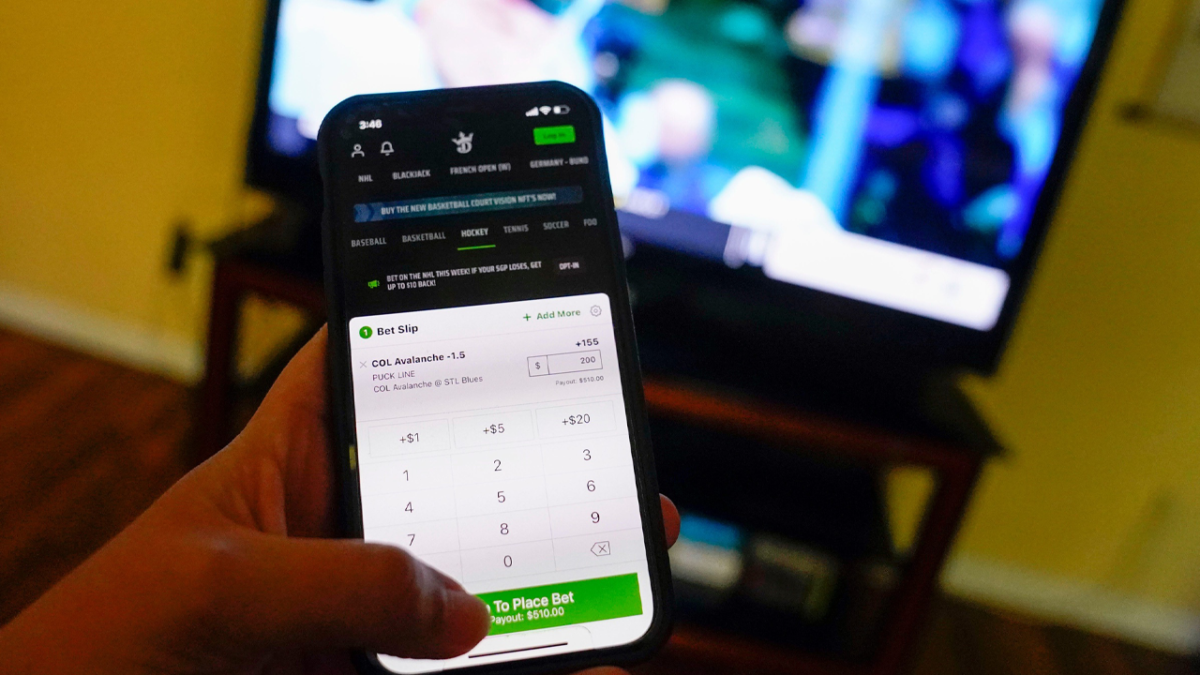
U.S. Open Matchup Picks
June 12, 2024
UFL Betting – UFL Championship Game Parlay Picks
June 13, 2024Based on a LendingTree analysis of official statistics, states are benefiting greatly from legalized sports gambling, with roughly $2.5 billion in tax income in 2023. This represents a 34.7% increase in the country over the previous year, with growth of at least 10% in 19 states—some of which saw growth of 40.0% or higher. The states with the highest revenue from sports betting were determined by LendingTree through analysis of state tax revenue data from the U.S. Census Bureau.
Check out the latest sports betting odds at Caesars.
The nation’s center for sports betting tax revenue is New York. The Empire State had the most sports betting tax income in the nation in 2023, taking in $876 million. Compared to 2022, that is a 24.1% increase. The sports betting tax revenue in Alabama, Nevada, Colorado, and Virginia increased by at least 40% in 2023. Nineteen states experienced double-digit revenue growth overall; but, when states where online sports betting had not yet been legalized in 2022 or 2023 were excluded, these four states showed the largest year-over-year growth.
Delaware topped the list of twelve states whose sports betting taxes yielded lower revenue in 2023 than in 2022. Between 2022 and 2023, the state’s tax revenue from sports betting decreased by 44.3%. It’s possible that some of these states’ revenue was impacted by adjacent states legalizing sports gambling.
Legalized Sports Betting Remains Popular
A total of 44% of Americans say sports betting should be legal in the country, while just 18% disagree, according to the LendingTree survey, (38% didn’t give an opinion.) Sports betting is legal in 38 states, plus the District of Columbia. Almost half of those surveyed said that they are worries that more sports betting will lead to more sports cheating. Despite the fact that sports betting has been quite popular in the past ten years, it is still prohibited in a number of states, like Texas and California, which have the largest economy and the highest population.
It’s unlikely that citizens of the Golden State or the Lone Star State will have unrestricted access to sports betting anytime soon, even though other states may legalize it in the near future. This is especially true in light of the statewide rejection of a proposition by California voters in 2022 that would have allowed sports betting at tribal casinos in that state.
A closer examination of the data shows some intriguing differences in opinions on this matter. Compared to just 30% of women, nearly six out of ten males (59%) believe that sports betting should be permitted nationwide. However, women do not strongly reject sports gambling (22% say so compared to 13% of males). It’s more that they lack a viewpoint. Merely 28% of men and 48% of women, respectively, indicate that they are neither in agreement nor disagreement.
The majority of Americans who are against the national legalization of sports betting are older ones. Among baby boomers aged 60 to 78, 29% disagree that it should be legalized nationwide, while 27% agree. The disparities are striking when comparing that to Gen Zers, who are 18 to 27 years old (54% agree, 12% disagree), and millennials, who are 28 to 43 years old (55% agree, 12% disagree).
Furthermore, Americans with greater incomes are considerably more likely to be in favor of legalizing than those with lower incomes. Only 36% of people with annual household incomes of less than $30,000 concur that sports betting should be legalized nationwide, compared to 52% of those with incomes of $100,000 or more.Check out the latest sports betting odds at Caesars.




